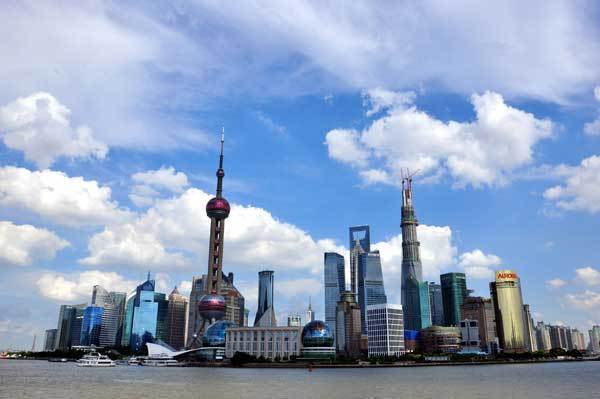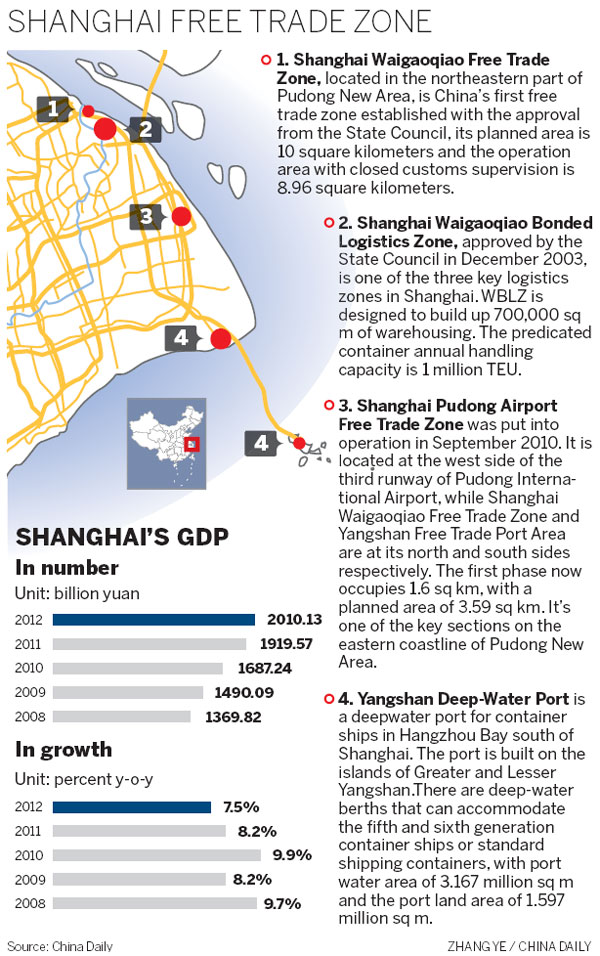Time of opportunities, challenges
Editor's Note: The Shanghai Free Trade Zone, a pilot project approved by the State Council, is expected to pave the way for China's business hub to become one of the world's leading financial, trade and logistics centers. China Daily will publish a series of stories to keep our readers updated about the policies and development of the free trade zone.
Several decades of carefully planned development have transformed Shanghai from an industrial dinosaur filled with smoke stacks into a modern service powerhouse adorned with gleaming high-rises full of banks, multinational enterprises and large trading houses.
The city has spared no effort in expanding its infrastructure, including a complex highway network, subway system, new railway terminals, two airports and a deep-water sea port. Moreover, it has magnetized talented workers from around the country with an abundance of well-paying jobs in the growing services sector.
 |
|
Adding one higher tower across the Bund, the 125-story Shanghai Tower. So will the FTZ bring Shanghai's reform and opening up to a higher level. zhou dongchao / for china daily |
This sector now accounts for 61 percent of the city's economic output and provides its major growth impetus.
But Shanghai has even grander plans in store: specifically, the building of a 28 square kilometer free trade zone, which was made known to the public last year. The plan has taken on a new sense of urgency since it was approved by the State Council in June.
Although details have yet to be disclosed, pundits expect it to follow roughly the same blueprint as similar zones in Hong Kong and Singapore.
The plan has broader ramifications than its immediate impact on businesses operating in Shanghai, as it is widely seen as a precursor to economic restructuring and financial reform on a national level.
The Shanghai free trade zone project is seen as a testing ground for a series of policy-based changes that are deemed necessary to facilitate sustainable economic growth.




















